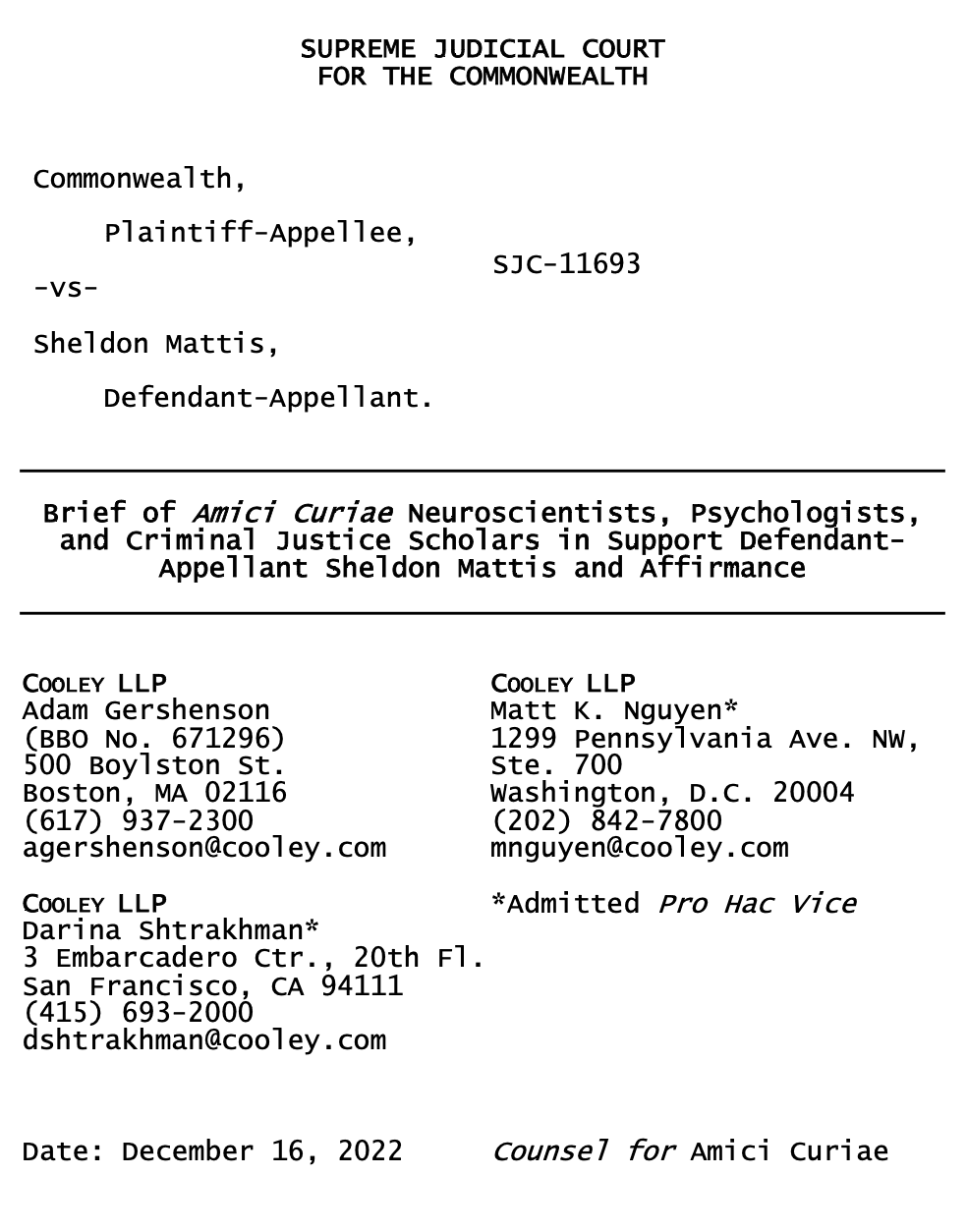
Summary of Argument
Under well-established law, Massachusetts courts may not impose life-determinant sentences such as mandatory LWOP on adolescents who committed the charged offense any time before they turned 18. That prohibition arose from scientific findings that led courts to conclude that these adolescents are less culpable and more capable of rehabilitation. Prior to the superior court order below, however, state courts had to impose LWOP on late adolescents like Mr. Mattis and Mr. Robinson involved in the same offense on or after the day they turn 18.
Pursuant to hearings ordered by this Court, 12/24/21 Order in SJC-09265 and SJC-11693, the superior court heard extensive testimony from experts, reviewed scholarly publications, and issued core findings of fact. Superior Court Order, at 10-11, 15-18. These findings conclusively establish that late adolescents (individuals aged 18, 19, and 20) across the relevant metrics are fundamentally similar to those in earlier phases of adolescence and more dissimilar to those in early adulthood or adulthood. Thus, the superior court held that LWOP is no more justified for late adolescents than for younger adolescents.
In Commonwealth v. Watt, 484 Mass. 742, 755-56 (2020), this Court acknowledged that “the latest advances in scientific research on adolescent brain development and its impact on behavior” “likely” justify “revisit[ing] the boundary between defendants who are seventeen years old and thus shielded from the most severe sentence of [LWOP], and those who are eighteen years old and therefore exposed to it.” To date, mandatory LWOP for late adolescents has relied on the misconception that these still very young people are incorrigible and beyond reform for reentry into society. But as illustrated by the compelling expert testimony credited by the superior court, abundant, more recent neuroscientific evidence establishes that the brain, personality, and behavior evolve throughout the life span—including and especially in late adolescence—in ways that cannot be squared with those suppositions. Thus, as other state high courts, including Washington and Michigan, have recognized, drawing the line at 18 for when mandatory LWOP cannot be constitutionally imposed is, from a scientific perspective, arbitrary and misplaced.
Consistent with the superior court’s core findings below, this Brief underscores the prevailing scientific consensus regarding brain development and behavior, which reveals profound changes throughout late adolescence. Because brain structure and function, as well as an individual’s behavior, personality, and propensity for risk-taking and danger are all profoundly in flux through late adolescence, there is no rational scientific basis for drawing a line at age 18 for when LWOP sentences may be constitutionally applied. Amici therefore submit that the contemporary scientific consensus furnishes ample grounds for this Court to “reach an informed conclusion [that] individuals in their late teens or early twenties should be given the same constitutional protections as juveniles for purposes of the Eighth Amendment and art. 26.” Com. v. Garcia, 482 Mass. 408, 413 (2019).